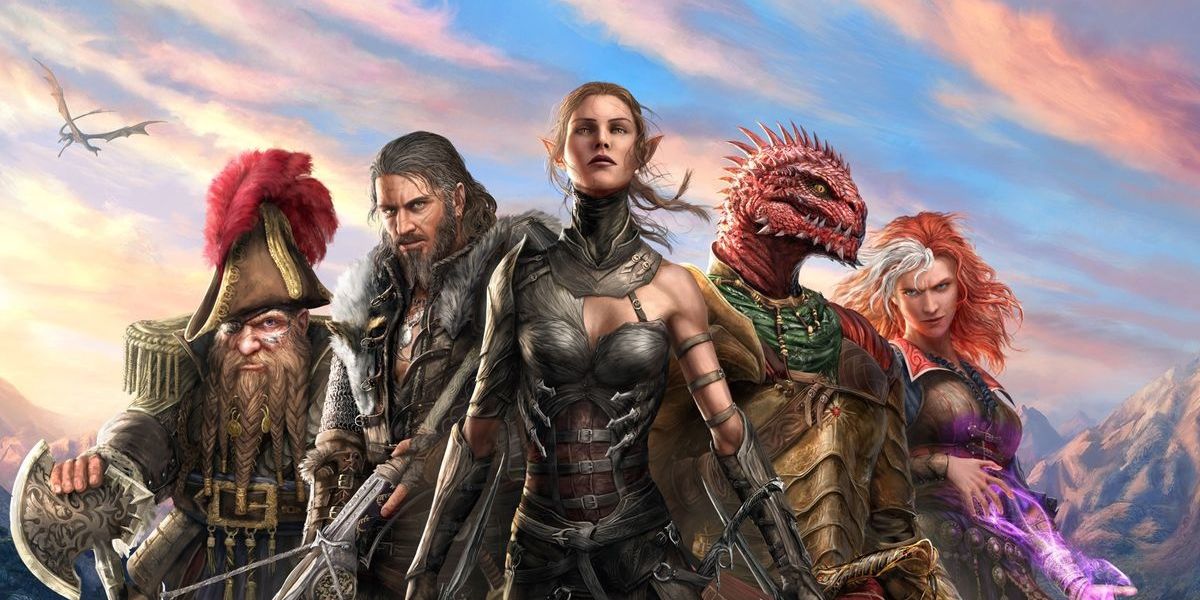
From its clunky arcade origins to the expansive orchestral arrangements that now characterize your favorite games, video game music has evolved into its own genre.
Sure, the 8-bit click-clack of Super Mario Bros. brings back pangs of nostalgia, but the terrible MIDI muck of Sonic Chronicles: The Dark Brotherhood and the lethargic horns of PSone’s Resident Evil show the tragedy that transpires when the process is rushed. It takes a lot of effort and patience to curate a meaningful score.
A 30-piece “barbarian choir” was enlisted to curate the epic “Dovahtinvaa”-sung theme for Elder Scrolls V: Skyrim, and a full orchestra crafted a theme song laden with “age, wisdom, power [and] masculinity” for 2018’s God of War. The standards of video game scores have only increased over the years, and while the soundtracks of Journey and Halo remain iconic, there are a handful of lesser-known titles whose soundtracks didn’t get the love they deserve. Whether it’s an indie title or an overall weak game, these scores should still be counted among the greats.
Divinity: Original Sin 2
“Is DOS 2 one of the best RPG’s of all time?” is a question that has floated around Larian Studio’s tabletop masterpiece for years. A sprawling, immersive, and complex RPG experience, Divinity 2’s soundtrack is as masterful as the gameplay itself. Complete with sweeping strings, horns, and a haunting choir, DOS 2 possesses a masterful soundtrack. Sure, on the surface, the big orchestras sound like a classic RPG score, but Divinity 2’s prestige has always been in its intricate details.
The soundtrack is one of gaming’s best because of its versatility alone. What a player hears at any given time is randomized, so that no two players have the same experience. For example, every time a player re-enters an area, a new batch of sounds greets them, whether it be crashing waves along the rocky shores of Fort Joy or the fluid chitter-chatter of locals in Driftwood. DOS 2 is especially spectacular because it was the first time Larian had ever used a real orchestra, and the results were spine-tingling.
Wild Arms
The RPG series received overwhelmingly positive responses from gamers and critics alike, thanks to its immersive Western world, complex story, and brooding characters. Still, the game’s quirky soundtrack never truly got the love it deserved.
The kitschy whistling and driving guitar behind the game’s opening theme makes the player excited for the adventure that lies ahead. While not every track on the project’s soundtrack makes the most out of the western theme, the game’s genre-blending ideas were ahead of their time.
Tenchu 2: Birth of the Stealth Assassins
While the soundtrack for the original Tenchu was equally as good, Tenchu 2 takes it to new heights with its focus on bright, popular Japanese music. While a few offerings line-up with the game’s ethos of being a “stealthy assassin,” most of Tenchu 2’s music relies on high-spirited horns, loud, belting vocals, and driving, rhythmic drums. Somehow the game’s bubbly soundtrack fits its atmosphere perfectly.
Remember Me
2013’s Remember Me was set up to be a truly extraordinary experience. It’s eerie futuristic world and powerful heroine hyped up the Dontnod and Capcom collab to be a fully immersive sandbox experience unlike anything seen before. While the game’s reception was still mostly positive, it felt like a missed opportunity, as the game suffered from suffocating level design and a short, uneven narrative that watered down the experience players were hoping they’d have.
With that said, the game’s glitchy soundtrack is incredibly unique. It makes it sound like your speaker is malfunctioning, adding a relentless, unsettling tone to the nightmarish world that surrounds you. But the rapid electro beats are surprisingly rich with emotional catharsis. The main menu music, with its expansive strings, masculine horns, and jagged electronica curate moments as panoramic as the game was initially advertised to be.
What would you find in 2084’s Neo-Paris as you search for your memories? Would you learn that your past life wasn’t all you thought it was, or would you realize that the relationships and happiness you used to have was indicative of a world that no longer existed? All of these tense possibilities can be truly felt within the game’s score, which is what makes it all the more heartbreaking that the project was more 2-D than initially advertised.
Advent Rising
One of the most disappointing releases ever, GlyphX Games’ Advent series was meant to be a trilogy, but it was canned after Advent Rising received negative reviews across the board. Its hollow characters, stiff gameplay, uncreative story, and a vast array of technical problems made it a challenging game to sit through despite its potential, but the project’s soundtrack almost makes the experience worth it.
It’s strings and choral arrangements make the player feel passionate about a world that lacks any sort of creative or emotional depth, and it’s a shame that the music couldn’t have been featured in an epic sci-fi film instead of at inopportune moments during the game. Seriously, why do I need a hard-hitting choral arrangement if I’m just heading to the cockpit?
Halo 3: ODST
While the Halo score is known in all reaches of the universe as one of the most iconic soundtracks ever made, there was something special about the music behind the 2009 prequel Halo 3: ODST. You no longer possess the magnanimous power of Master Chief; in ODST you are merely a soldier who begins his journey through the 26th century as a vulnerable cadet rather than a legendary powerhouse.
The soundtrack, in turn, is far different than any of those that came before or after. Its sweeping orchestral score doesn’t ground the player in the world around them as much as make them pine for a time that existed before war decimated the galaxy. The soundtrack is, at times, slow and nostalgic as well as ominous and unsettling and deserves a place among Martin O’Donnell’s best work.


 58
58